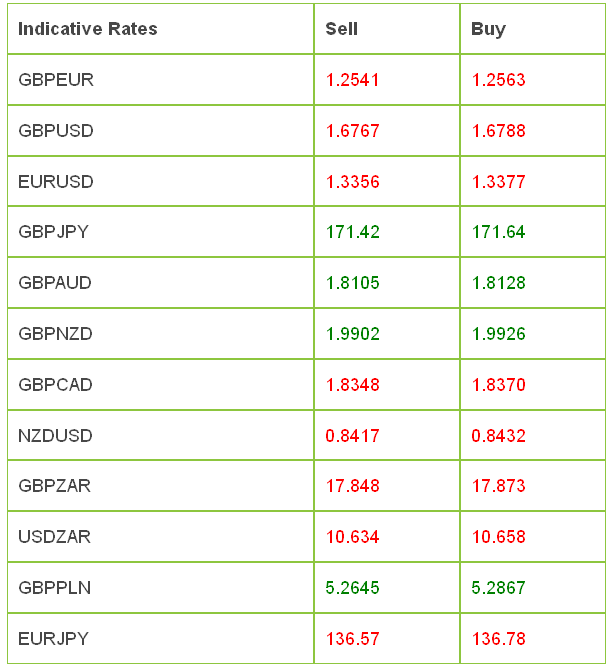Investing.com’s stocks of the week
The geopolitical situations that have had markets rapt since their beginnings are rumbling on this morning although there are tentative positives to take from the past 24hrs’ movements. A convoy of “humanitarian aid” left Russia yesterday for rebel held parts of Ukraine with Russian trucks backing up the Red Cross effort. The EU and US have warned Russia that this is not to be used as a cover to begin further military intervention but, certainly in the short term, the additional aid will come as a welcome to relief to people in that part of the world. The euro and regional currencies – PLN, HUF and CZK – have continued their recovery from the lows seen on Friday.
One crisis that seems prepped for further deterioration is that of Iraq. While it looks like US military action in the north of the country has managed to slow the advance of ISIS forces, it is the capital city where tensions are rising. Prime Minister Nouri al-Maliki has rejected calls for his resignation, including a vote in the country’s parliament, and has increased the number of troops and tanks on the streets of Baghdad. It is commonly thought that the divisions at the senior government level have allowed Sunni militants to thrive in the Northern part of the country and any further power grabs will only further destabilise a volatile region. Oil remains sold this morning but remains well supported at current levels and will start making an impact on inflation baskets globally soon.
The New Zealand property market continued to slow its extraordinary levels of growth last month falling to a 5.9% gain in July but a 13% fall in year-on-year terms. That is the worst performance since September 2012 and will put a further nail in the coffin of any interest rate rise expectations through the remainder of 2014. The RBNZ has raised rates four times already this year but signalled a pause at its most recent meeting, arguing that “the level of the New Zealand dollar is unjustified and unsustainable and there is potential for a significant fall”. The kiwi dollar is the biggest faller overnight and is 0.5% lower against the US dollar, and 0.4% against GBP.
Its Australian counterpart is doing a lot better this morning, however, following a better than expected house price release and a strong business confidence number. House prices were 1.8% higher on the quarter, beating expectations of a 1% gain while business confidence rose to the highest level since September of last year, the month of the country’s general election. Business confidence is performing better than household confidence at the moment and we will look for signs that this pull higher in sentiment can make a dent in last week’s shocking employment report that saw the jobless rate rise to a 12yr high.
The German ZEW survey of economic confidence is the most important measure out this morning. The figure has been on a steady downtrend since the beginning of the year, coinciding with the escalation of the Ukraine crisis and should continue its fall later today. One caveat we would give is that recent euro data has been poor but not as overtly poor as it is expected to be and therefore there is the possibility for a slice of euro strength. We doubt that this trend will last in the longer term but it has been evident for a fortnight or so now.
We are looking for sterling to begin to move higher through today’s session as well in the lead-up to tomorrow’s Bank of England Quarterly Inflation Report.

